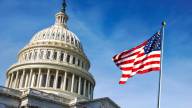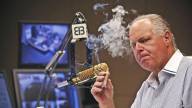
Mindfulness is a concept that most of us may have heard of, but few have fully grasped. This podcast between Paul Rand and Ellen Langer takes us on an illuminating journey through the corridors of mindfulness and its implications for our health, decision-making, and general well-being.
The Healing Power of Mindfulness
Picture this: you’re grappling with a chronic illness, arthritis, multiple sclerosis, or Parkinson’s disease. The ache is unyielding, the days long. Ellen Langer’s pioneering research has unearthed the incredible power of mindfulness in mitigating chronic illnesses. It’s not just some hokey placebo; it’s tapping into a fundamental change that has transformative effects on various disorders.
Modern healthcare is a juggernaut, often prescribing pills and procedures over the mental aspect of healing. Her critique of this establishment is eye-opening. Medical diagnoses and prognoses are often taken as written in stone. But what if they are just probabilities, not absolute destinies? She nudges us to question our healthcare system, which can be more detrimental than beneficial when it disregards psychological aspects like mindfulness.
The Borderline Effect
Have you ever paused to ponder the immense power that a single number can wield over your life's trajectory? It's a curious but unsettling thought. Imagine taking an IQ test and falling short by just one point from what society deems "average." Suddenly, you're branded as "cognitively deficient," a label that can haunt you through school, job opportunities, and even social circles. Ellen Langer refers to this as the "borderline effect." This is where arbitrary numerical cutoffs, whether an IQ score, a cholesterol level, or a blood sugar count, set the course for how we're treated and what opportunities may or may not be accessible.
It's not just about the label; it's about the real consequences that can unfold in people's lives. Take the case of someone stamped with the "pre-diabetic" label based on a blood sugar reading that teeters on the edge. In many ways, we are culturally conditioned to accept these medical labels as gospel, unyielding truths that determine our destiny. This designation can sometimes act like a self-fulfilling prophecy.
Armed with this "pre-diabetic" tag, individuals who were once proactive about their well-being might suddenly resign themselves to what they perceive as an inevitable future—developing full-blown diabetes. This resignation can manifest in less stringent health choices, potentially making that feared outcome a reality. As Langer would argue, these labels can have a domino effect, toppling over various aspects of our lives, from our health to our self-esteem and overall well-being. She calls on us to question these numerical determinants and explore more compassionate, holistic ways of evaluating human conditions.
Are We Prisoners of Prediction?
The allure of predicting the future is irresistibly seductive; it offers us a semblance of control in an unpredictable world. We weigh pros against cons, calculate risks and rewards, and try to foresee how a decision could play out. This drives everything—from personal choices about relationships and careers to policy decisions at a societal level. Yet, Ellen Langer challenges this ingrained mindset, urging us to confront a disquieting truth: all attempts at prediction are illusions, often lending us a false sense of security or leading us astray.
She proposes a groundbreaking alternative, introducing us to a mindful approach to decision-making that promises to untangle the complexities we often create for ourselves. Her philosophy is surprisingly straightforward: instead of over-analyzing every possible outcome, why not focus on "making a right decision"?
This shifts the emphasis from prediction to action, allowing for adaptability and learning. It frees us from the burden of having to be psychic arbiters of our fates and empowers us to be active participants in shaping them. No longer must we be paralyzed by the dread of making the "wrong" choice; by committing to make any decision "right," we open up new pathways for creativity, growth, and a more fulfilling life.
The Silent Killer and Mindful Antidote
Stress seems to be a constant companion for most of us, a persistent fog that obscures the sunny moments and amplifies our darker thoughts. It infiltrates our daily lives, persuading us that something awful is always lurking just out of sight. But Ellen Langer, a researcher diving deep into the human psyche, asks us to pause and reconsider this 'given' condition.
She challenges the conventional wisdom surrounding stress. She nudges us to confront our preconceptions and question whether that 'terrible thing' is as inevitable as we've been led to believe. Moreover, she suggests that even if it does happen, is it as terrible as we've conjured it up?
By unpacking and dissecting these deep-rooted beliefs, she dissects stress down to its core components: first, the belief that something negative is imminent, and second, the anticipation that its impact will be disastrous. These two elements often become self-reinforcing cycles, escalating stress to unbearable levels.
She offers a liberating alternative to this vicious cycle. She invites us to question these ingrained beliefs rigorously. What if the 'bad thing' we fear never materializes? And even if it does happen, could there be a silver lining or benefits we haven't considered? We can significantly dial down our stress levels by actively challenging these preconceived notions.
This simple but profound shift in perspective can alter how we navigate life’s challenges, turning them into opportunities for growth rather than sources of perpetual anxiety. It's not just about avoiding stress but transforming it into a tool for mindfulness and well-being.
Making Mindfulness Stick
Wrapping our heads around mindfulness often turns out to be the straightforward part of the journey. It's making this ethereal concept a concrete part of our day-to-day existence that presents the real challenge. The question most of us grapple with is: How do we take this lofty idea and plant it firmly in the soil of our daily decisions and actions? Ellen Langer suggests the answer lies in adopting a "conditional mindset."
Rather than viewing situations through the lens of absolutes—thinking that things "must" or "should" be a certain way—we can approach life's challenges with a more adaptable stance. By thinking, "It could be like that," we grant ourselves the leeway to explore, adapt, and innovate. This mindset can be incorporated into smaller tasks like teaching children or learning a new sport.
When we adopt a "conditional mindset," we give ourselves room to breathe. We step out of the straitjacket of rigid thinking and permit ourselves to be flexible. This is crucial because life isn't a one-size-fits-all experience. Our needs, desires, and values are as unique as our fingerprints. Think about teaching math to a child. Instead of imposing one 'correct' way to solve a problem, you could say, "Hey, it might work like this too," encouraging multiple paths to the answer. It's like giving kids a toolbox rather than just a single tool.
Take another scenario—learning to play tennis. The usual way is to follow prescribed techniques, but what if you thought, "Maybe I could swing my racket differently?" You're granting yourself the freedom to tinker and find the technique that suits you best. This mindset does more than make life manageable; it makes it rich and rewarding. We're not just navigating through life; we're exploring it, customizing our journey to align with our true identity. It's the difference between wearing a tailored suit and squeezing into one that doesn't fit.
Ellen Langer's pioneering work is a call to action for each of us. She pushes us to rethink our lives, question what we've taken for granted, and dive back into the driver's seat we might've unknowingly vacated. She's not just suggesting we take control; she's urging us to regain it, reestablishing ourselves as the architects of our lives. It invites us to a higher plane of consciousness, where we're not just passive recipients of life's offerings but active participants in our fate.
About the Author
 Robert Jennings is co-publisher of InnerSelf.com with his wife Marie T Russell. He attended the University of Florida, Southern Technical Institute, and the University of Central Florida with studies in real estate, urban development, finance, architectural engineering, and elementary education. He was a member of the US Marine Corps and The US Army having commanded a field artillery battery in Germany. He worked in real estate finance, construction and development for 25 years before starting InnerSelf.com in 1996.
Robert Jennings is co-publisher of InnerSelf.com with his wife Marie T Russell. He attended the University of Florida, Southern Technical Institute, and the University of Central Florida with studies in real estate, urban development, finance, architectural engineering, and elementary education. He was a member of the US Marine Corps and The US Army having commanded a field artillery battery in Germany. He worked in real estate finance, construction and development for 25 years before starting InnerSelf.com in 1996.
InnerSelf is dedicated to sharing information that allows people to make educated and insightful choices in their personal life, for the good of the commons, and for the well-being of the planet. InnerSelf Magazine is in its 30+year of publication in either print (1984-1995) or online as InnerSelf.com. Please support our work.
Creative Commons 4.0
This article is licensed under a Creative Commons Attribution-Share Alike 4.0 License. Attribute the author Robert Jennings, InnerSelf.com. Link back to the article This article originally appeared on InnerSelf.com
books_mindfulness








